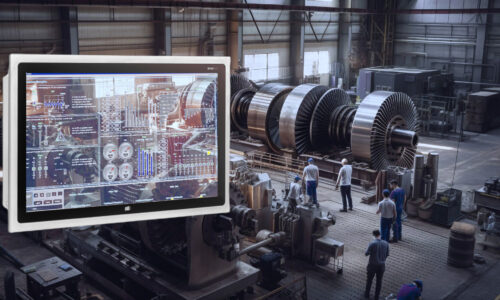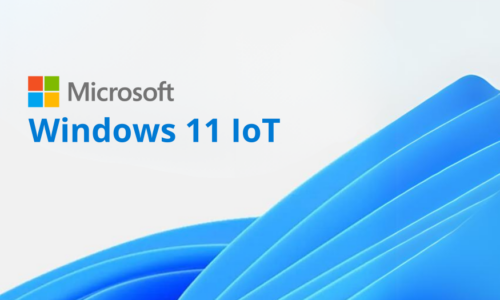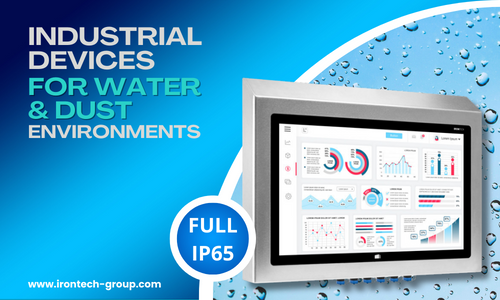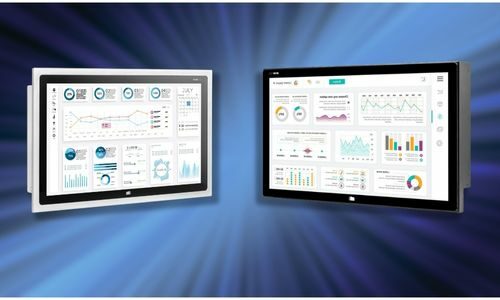In the current era of industrial automation, industrial computers play a fundamental role in ensuring the efficient operation of processes in industrial environments. Below, we will see how industrial computers intervene in industrial automation and how they interact with Programmable Logic Controllers (PLC) and Supervisory Control and Data Acquisition (SCADA) systems.
The Main Pillar of Industrial Automation: Industrial Computers
As we saw in the article on industrial computing trends, technology is advancing by leaps and bounds, making industrial automation projects easier and more productive, leading to increased productivity and cost reduction.
Industrial PCs are key components in this infrastructure, as they are the actuators of these systems and the core of control and visualization. They are the machines that interact with all elements of industrial automation, including PLCs and SCADA programs.
They are responsible for executing tasks and where PLC programming will work and be launched. They also act as the screen on which we can view SCADA data to control and even take action based on the presented data. This combination of elements is all provided by a single device, a Panel PC.
To understand this working equipment, let’s see what each part is:
What is a PLC?
PLCs are “Programmable Logic Controllers,” also known as “Programmable Logic Automata.” They are devices used to control and automate industrial processes. Industrial computers closely interact with PLCs to provide a more advanced platform for control and supervision. Specifically, a PLC is an industrial computer control system that continuously monitors the state of input devices and makes decisions based on a custom program to control the state of output devices. This system can be used to create applications for maneuvering, movement, control, signaling, among others.
The Integration of PLCs and Industrial Computers in Industrial Automation
Communication between industrial PCs and PLCs is established through industry-standard interfaces and protocols such as Modbus, Profibus, or Ethernet/IP. These interfaces enable real-time data transfer between the industrial computer and the PLC, facilitating supervision and control of industrial processes.
In addition to acting as a communication interface, industrial computers perform complementary functions that enhance the capabilities of PLCs. For example, industrial computers can execute more complex control algorithms, perform real-time analysis, and store large amounts of historical data. These capabilities allow for more intelligent and advanced decision-making, resulting in more precise and efficient control of industrial processes.
What is a SCADA Program?
Supervisory Control And Data Acquisition (SCADA) systems are a fundamental tool in industrial automation as they serve to control industry equipment, collect and record data from operations. This contributes to remote decision-making and even automation with algorithms from a control room.
How does it work? Sensors take measurements, which are collected and sent to the Panel PC by PLCs and Remote Terminal Units (RTUs), for a SCADA operator to view, analyze, and act upon. SCADA software brings these three elements together, taking the data and generating a centralized visualization and control center on an HMI.
Interacting with SCADA
Industrial computers are integrated with SCADA systems through standard interfaces and protocols such as OPC (OLE for Process Control) or DNP3 (Distributed Network Protocol). These interfaces enable bidirectional communication between the industrial computer and the SCADA system, facilitating data transfer and remote supervision of industrial processes.
The combination of SCADA software with industrial PCs results in superior processing capabilities, allowing for real-time analysis of large amounts of data. This facilitates early detection of potential problems or failures in industrial processes, beyond the established industrial process automation.
In summary, industrial computers play a key role in industrial automation by providing a robust and reliable platform for controlling and supervising industrial processes. Their integration with PLCs and SCADA systems enables more advanced and efficient automation, improving performance and safety in industrial environments. As the industry continues to move toward increased automation, industrial computers will continue to play a crucial role in developing smart and connected systems.



